#Scandinavian #Antique #Furniture #Styles #Journey #Time
Scandinavian antique furniture styles offer a captivating glimpse into the rich history and cultural exchanges that have shaped the region’s design aesthetic. From the opulent French-inspired designs of the 18th century to the sleek and functional Mid-Century modern styles, Scandinavian furniture reflects a unique blend of influences and craftsmanship.
18th Century: French Elegance Meets Swedish Sophistication
18th-century Scandinavian furniture design was characterized by a blend of European styles. In particular, the 18th century marked a period of significant cultural exchange between Sweden and France, influencing the design of Scandinavian furniture. French styles, such as Rococo and Neoclassicism, became increasingly popular in Sweden, as the upperclass often imported them. This led to the creation of elegant and ornate Scandinavian furniture pieces with elaborate ornamentation and asymmetrical forms. This period saw the emergence of the Swedish Rococo style, characterized by its intricate carvings, curved lines, and ornamental motifs.
For example, this short lounge chair in carved and polished timber takes inspiration from the French Rococo furniture styles, with its curved legs and broad seat. It was during this time that upholstered furniture, which was much more comfortable, was also becoming more common.
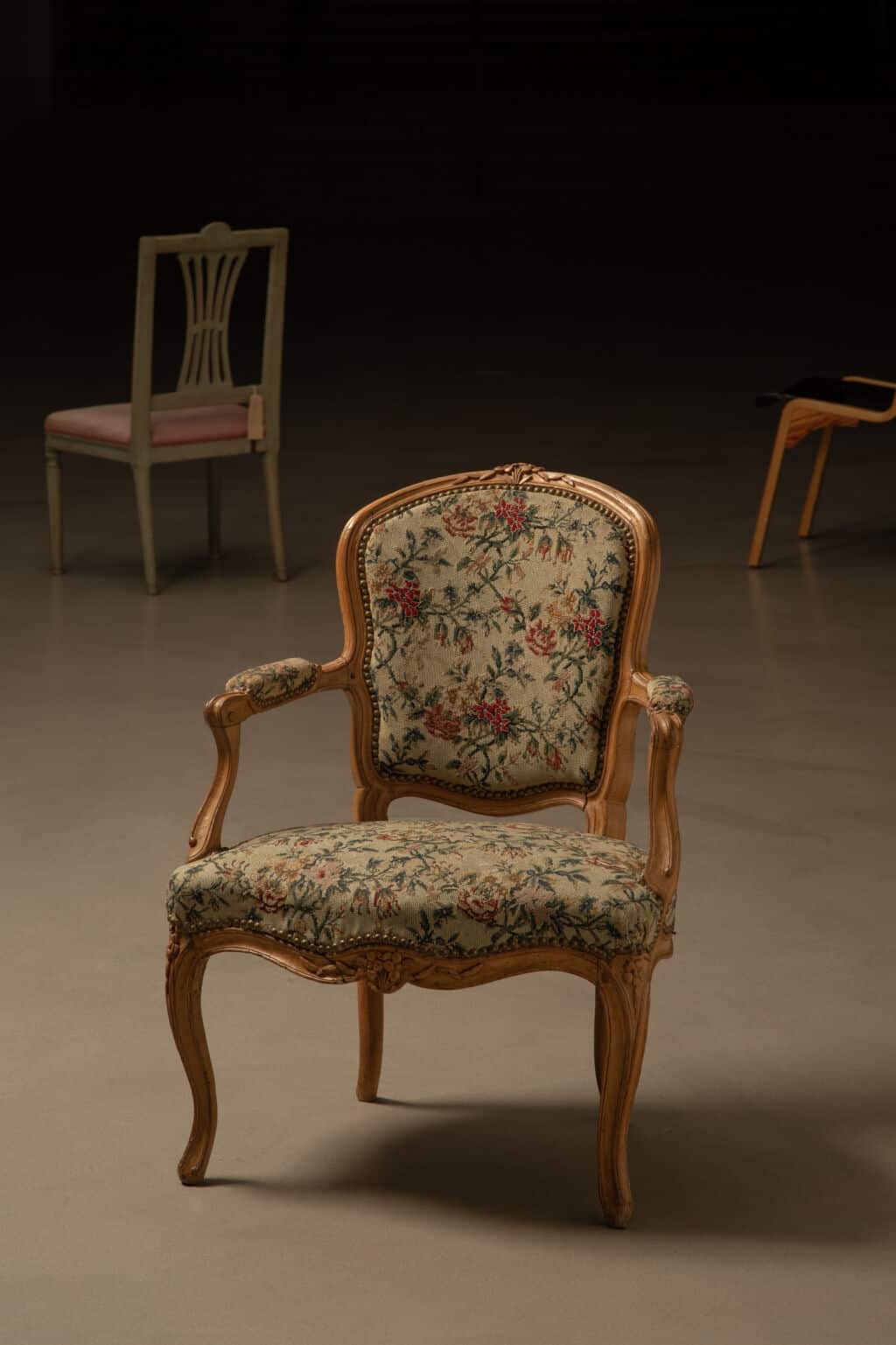
King Gustav III had gone to visit the Palace of Versailles, and was naturally impressed and decided to create his own Paris of the North in the 1780s. which let to the development of the so called Gustavian style, a variation of the French Neoclassical or Louis XVI style.
This chair for example features more restrained, symmetrical forms and motifs based on precedents from classical antiquity. The chair legs are straight and chamfered, and the timber is painted with marble-inspired colors in grays and other cool tones.
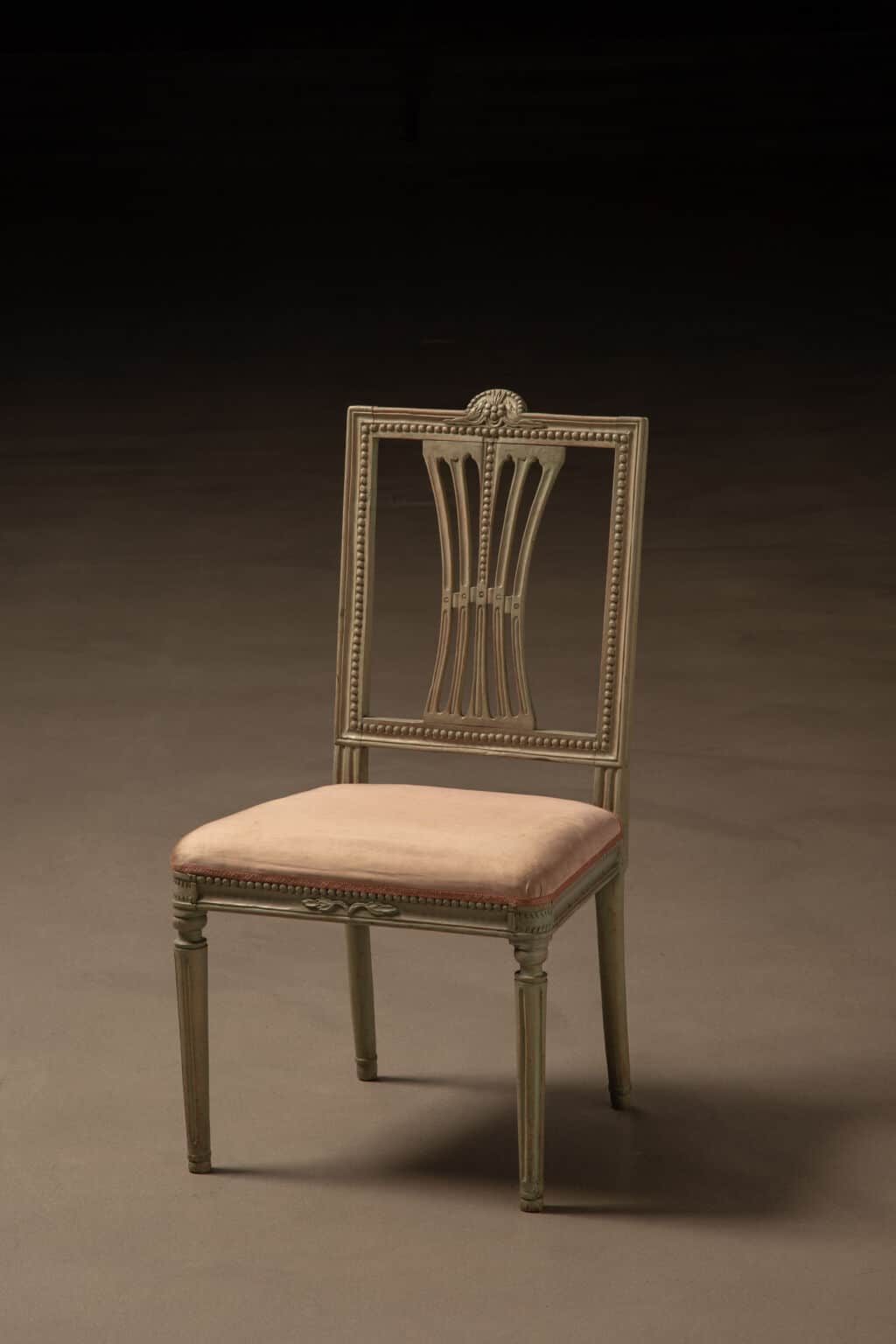

This set of four dining chairs is a wonderful example of the Neoclassical design of the Gustavian style. It has similar proportions as the French Louis XVI style, but a muted color palette and different carved wood, in this case pine, which was native to the area. Overall the Gustavian style slightly pared down the opulence of the French style. Often, the furniture was painted in pale colors to brighten up dark rooms during long Scandinavian winters.
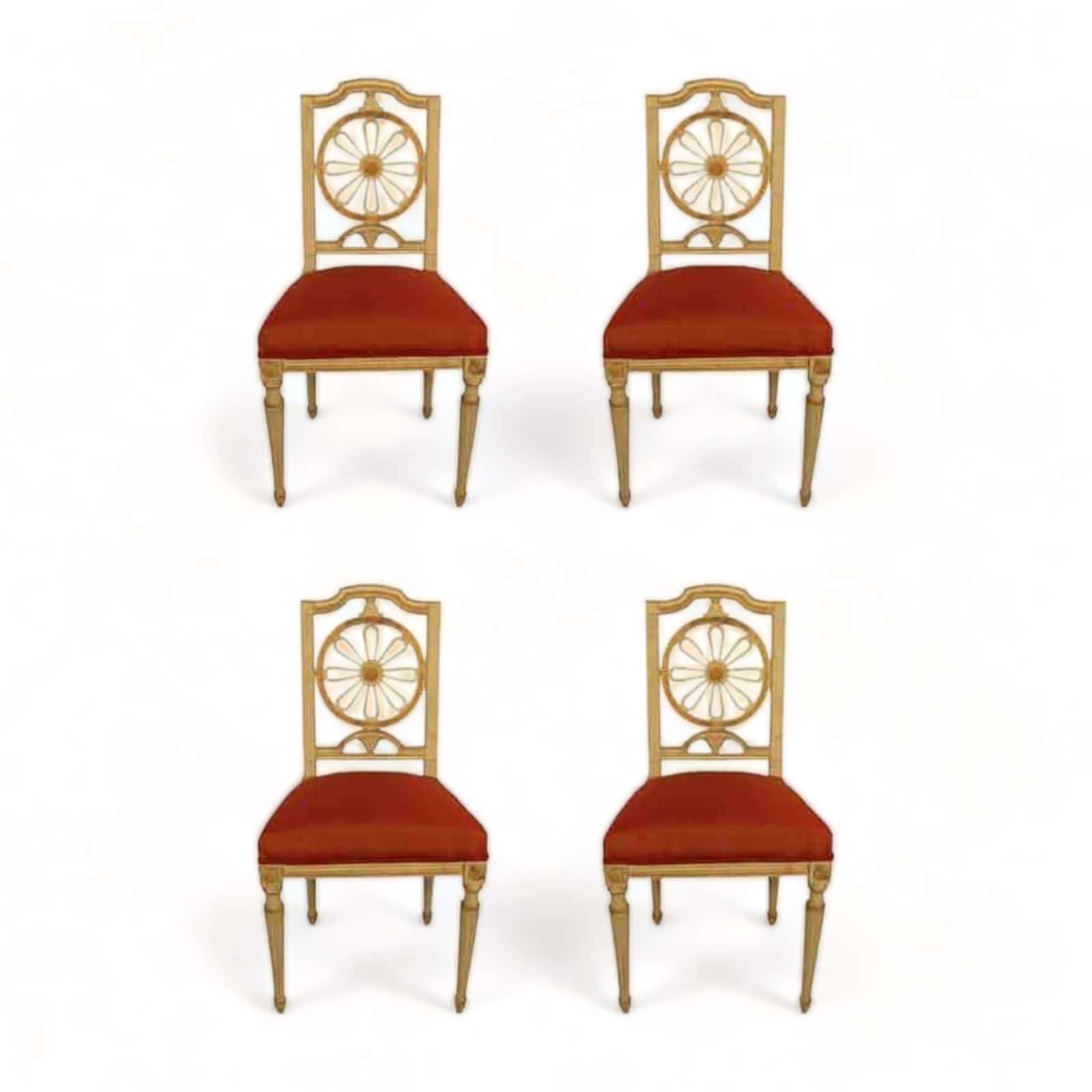

19th Century: The Carl Johan Style and the Danish Golden Age
In the 19th century, the influence of French design continued to be prominent in Sweden, particularly during the reign of the French house of Bernadotte, which became the royal family in Sweden. This period, known as the Carl Johan Style in Sweden, was named after the king and is characterized by its Neoclassical and Empire-style influences. The Swedish Carl Johan Style finds its equivalent in the Biedermeier Style in Germany and the Restauration style in France, reflecting the broader European design trends of the time.
Carl Johan’s summer palace at Rosendal in Sweden contains some of the best preserved examples of interiors from the period.
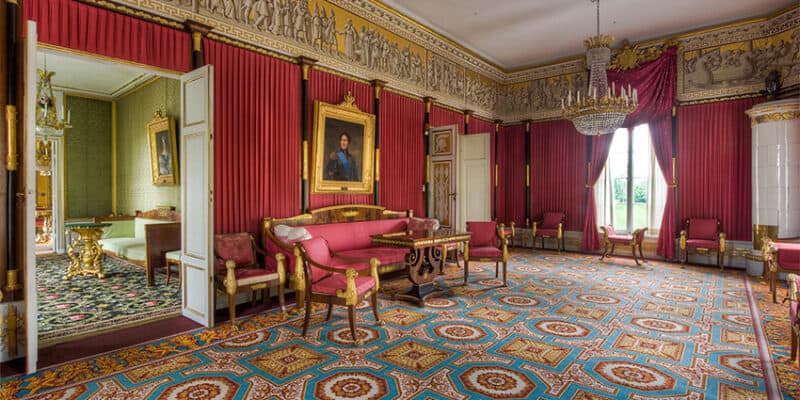

Denmark
During the Danish Golden Age, furniture styles in Denmark took influence from the broader European trends of the time, particularly German Romanticism and the Biedermeier style. Danish furniture from this period is characterized by its simplicity, functionality, and emphasis on craftsmanship.
Furniture Pieces of the Danish Golden Age
This charming dresser, available on Styylish, captivates with the typical features of classic 19th century Biedermeier design. It has a rich mahogany veneer on pine wood and four drawers with the top one slightly curved. In addition, the four small, oval shaped escutcheons do not draw any attention from the mirrored mahogany veneer.This Danish Biedermeier chest of drawers is the perfect piece for a small entry way.
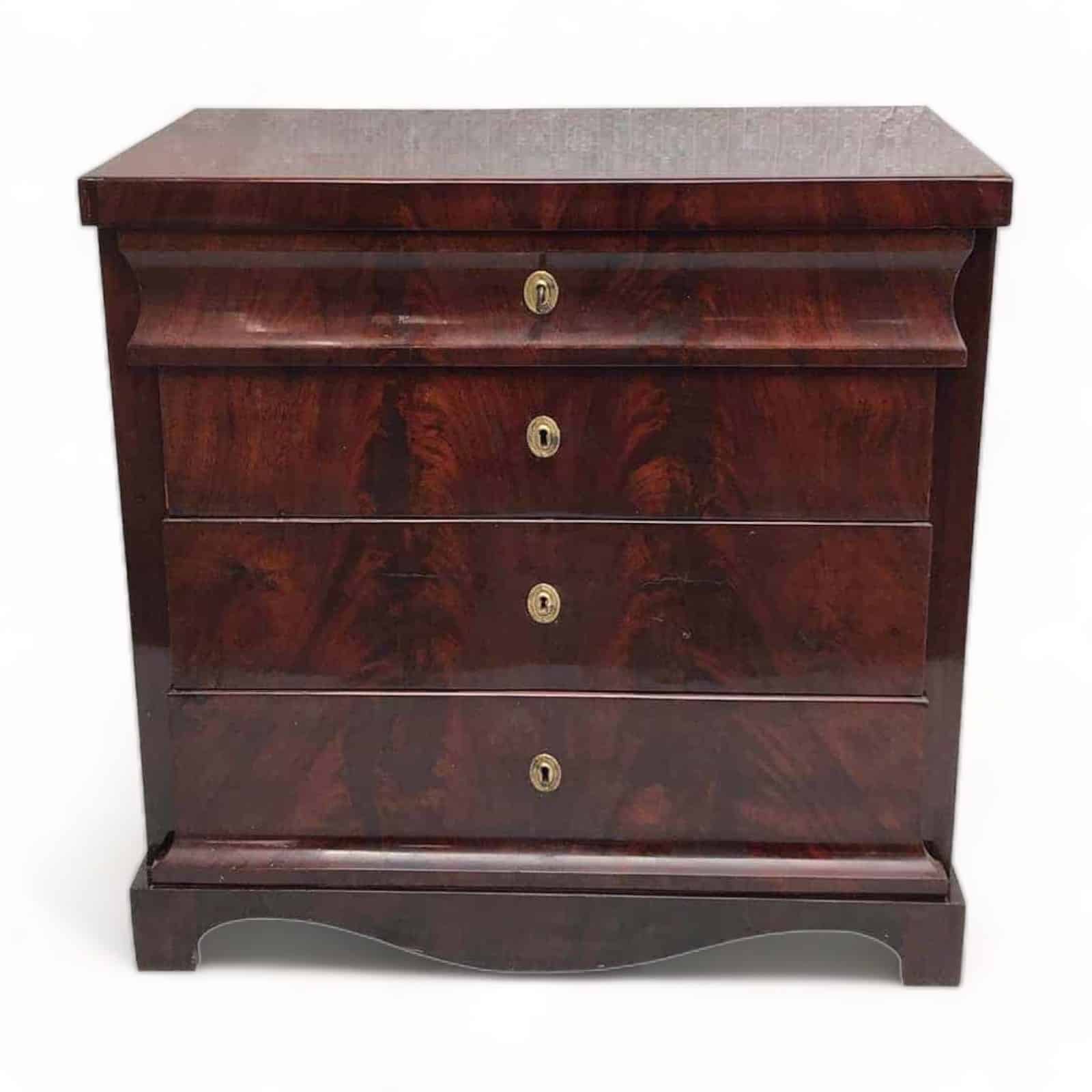

One of the key features of furniture from the Danish Golden Age is its use of high-quality materials, such as solid woods like oak, mahogany, and beech, which often feature intricately carved and polished to a high sheen.
This small Biedermeier dresser on Styylish stands out for its beautiful mahogany veneer. It dates back to 1820 and originates from northern Germany or Denmark.
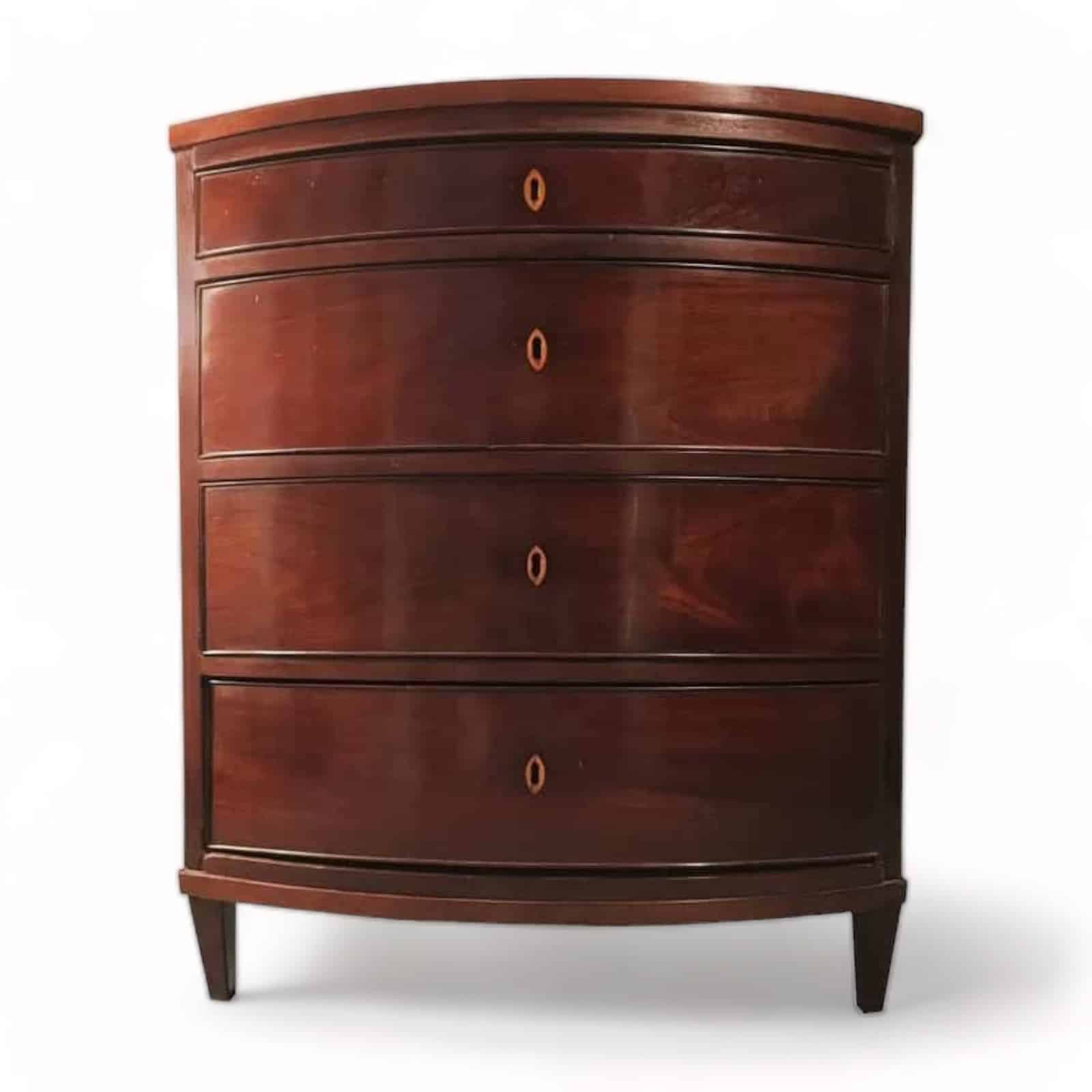

The design of furniture during this period also reflects a focus on comfort and practicality. Thus, the chairs and sofas feature upholstered seats and backs for added comfort. Another notable feature of Danish furniture from the Golden Age is its elegance and timeless appeal, with many pieces still prized for their beauty and craftsmanship today.
This unique pair of Scandinavian antique armchairs on Styylish dates back to around 1820-30. The chairs are made of yew, they have a very unusual and unique back design.
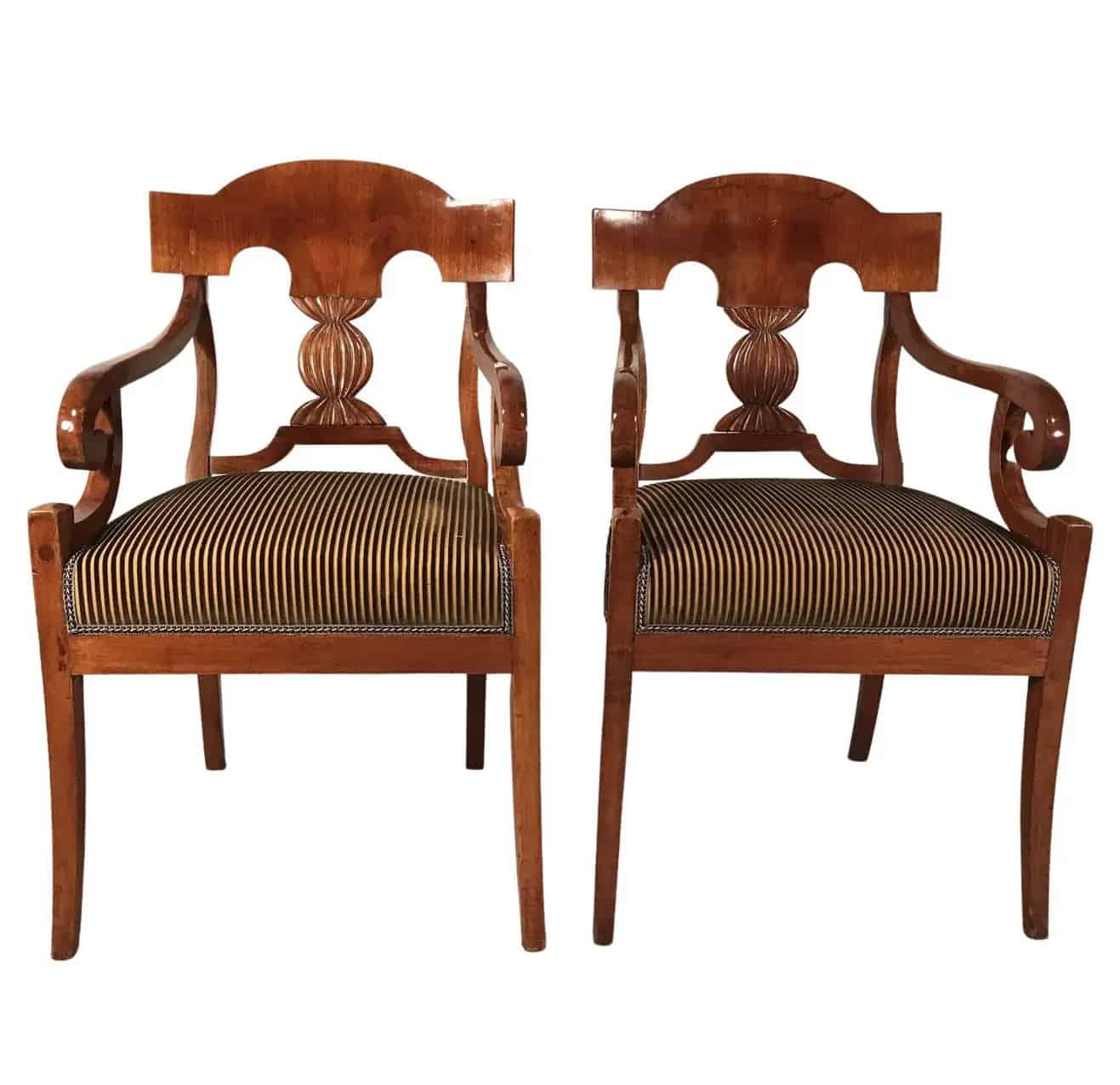

Mid-Century Modern: The Evolution of Scandinavian Design
The Mid-Century modern style emerged in the mid-20th century and features clean lines, organic forms, and functional design. Scandinavian designers, influenced by the principles of modernism and a desire to create affordable and accessible furniture for the masses, produced iconic pieces that are still highly sought after today. The Mid-Century modern style continues to be a major influence in contemporary Scandinavian design, reflecting the enduring appeal of Scandinavian antique furniture
Styylish proudly carries Nils Jonsson’s teak wood sideboard. It embodies Scandinavian Midcentury Modern style with its sleek design and functional features. Designed for Hugo Troeds Mobelfabrik, it features black sliding doors, a sculpted handle, and brass leg cups. The versatile piece includes a height-adjustable shelf and five drawers. Fully renovated and in excellent condition, this sideboard is a timeless addition to any home.
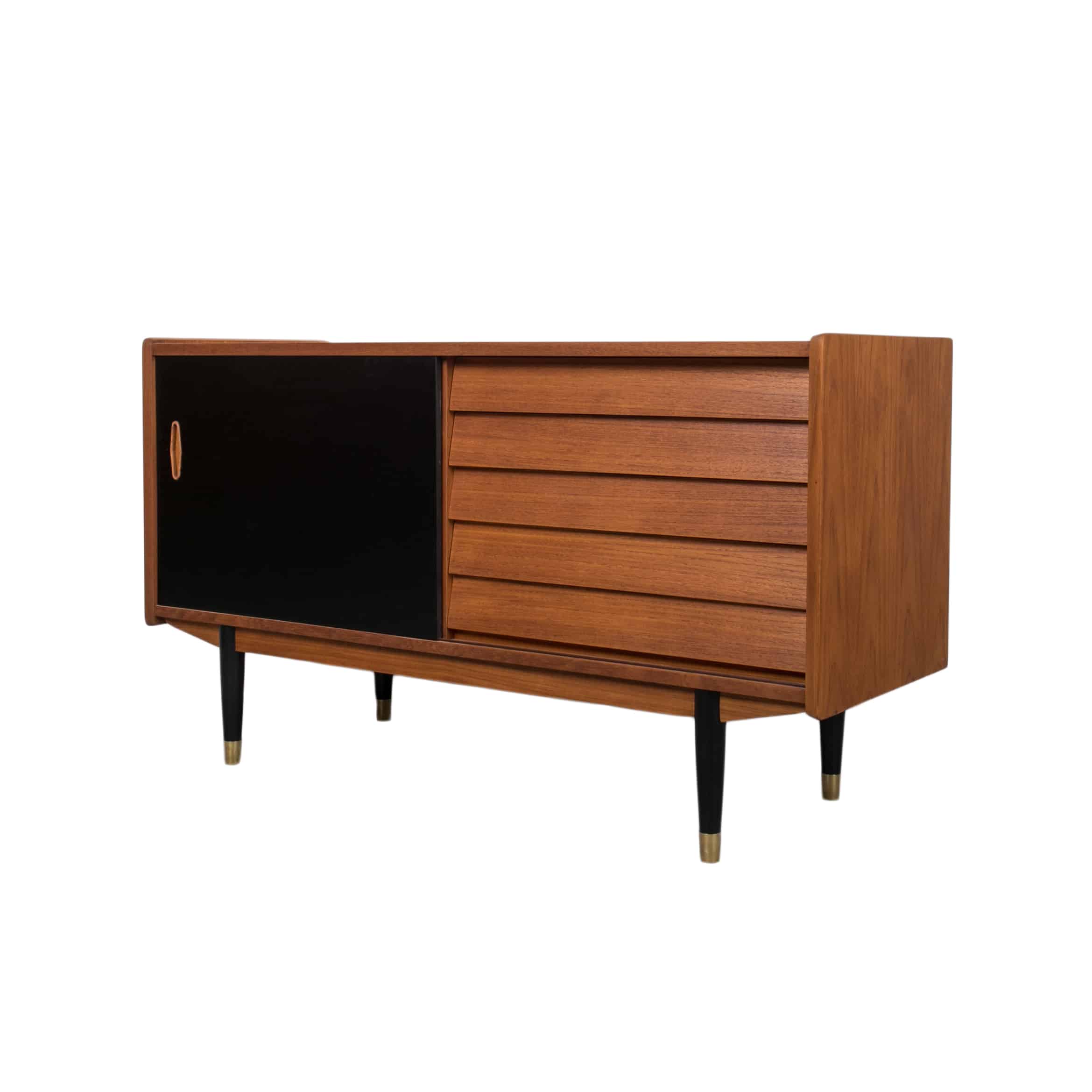

This iconic Mid century modern lounge chair by Folke Ohlsson on Styylish has a teak wood frame. This Swedish modern low-profile slat back lounge chair by Folke Ohlsson for Dux (Model 72-C) dates back to the 1950’s. It has two newly upholstered cushions, covered with a silver- grey Maharam fabric. This striking chair has wonderful lines and a dramatic low profile, providing generous width.
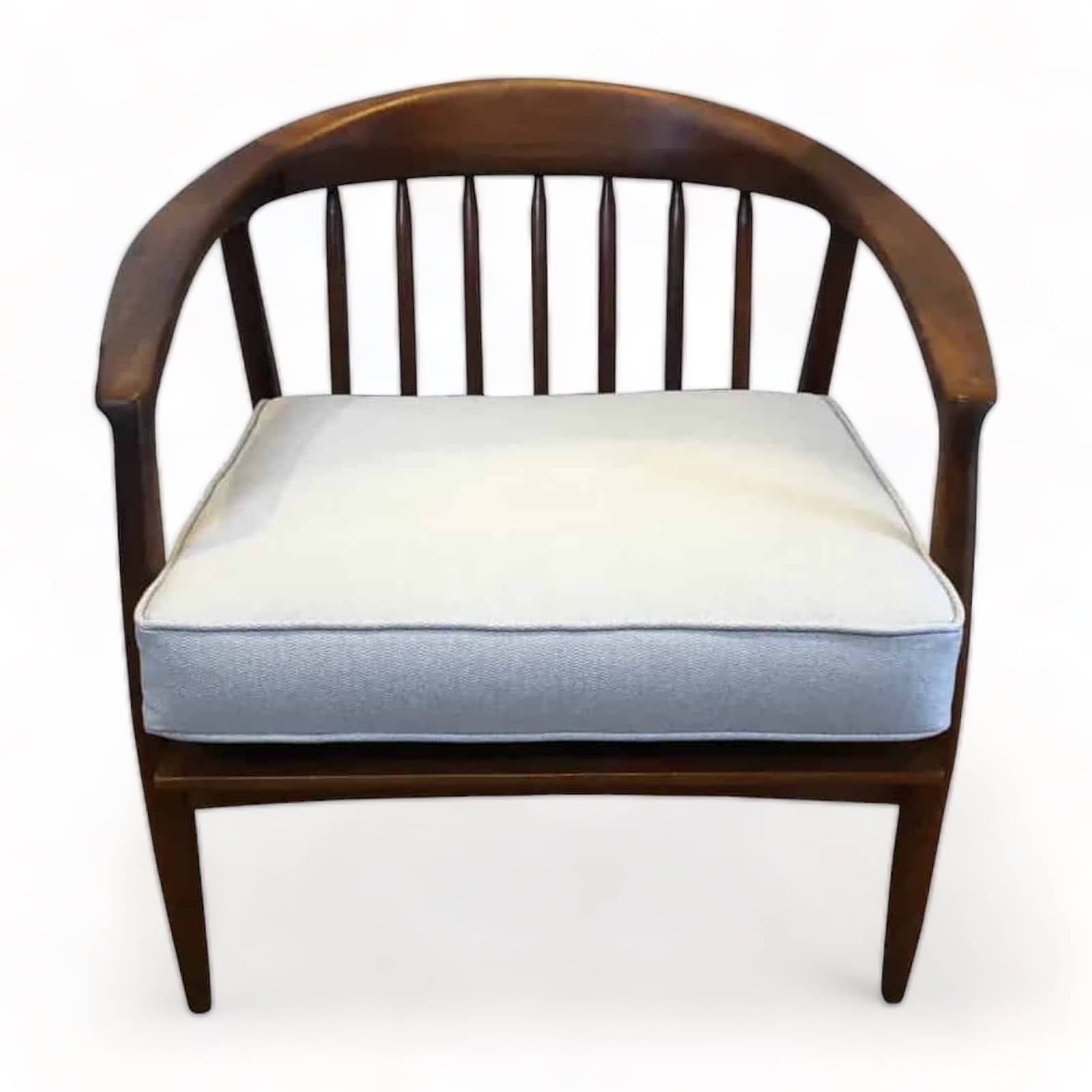

Elevate your living space with the timeless design of the “GJ106” teak coffee table. Created by Grete Jalk, this piece is available today on Styylish. This Danish masterpiece showcases the era’s craftsmanship and aesthetic sensibility, featuring a slatted part under the top for magazines or books. The table’s straight base highlights the teak wood’s natural beauty, embodying mid-century modern style.
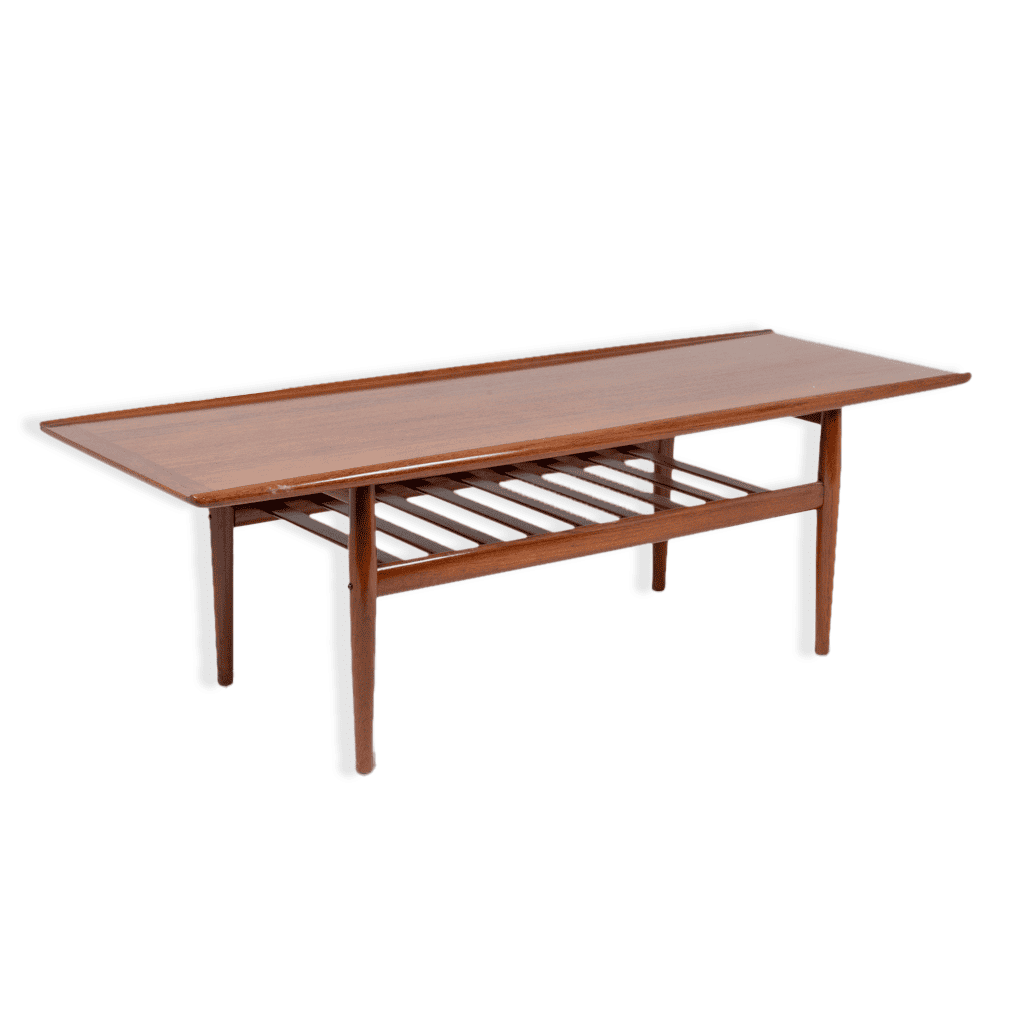

Scandinavian Antique Furniture: Craftsmanship of the Past
Antique furniture from Scandinavia offer a fascinating glimpse into the history and evolution of design in the region. From the opulent French-inspired designs of the 18th century to the sleek and functional Mid-Century modern styles, Scandinavian furniture reflects a unique blend of influences and craftsmanship that continues to captivate and inspire designers and collectors alike.



